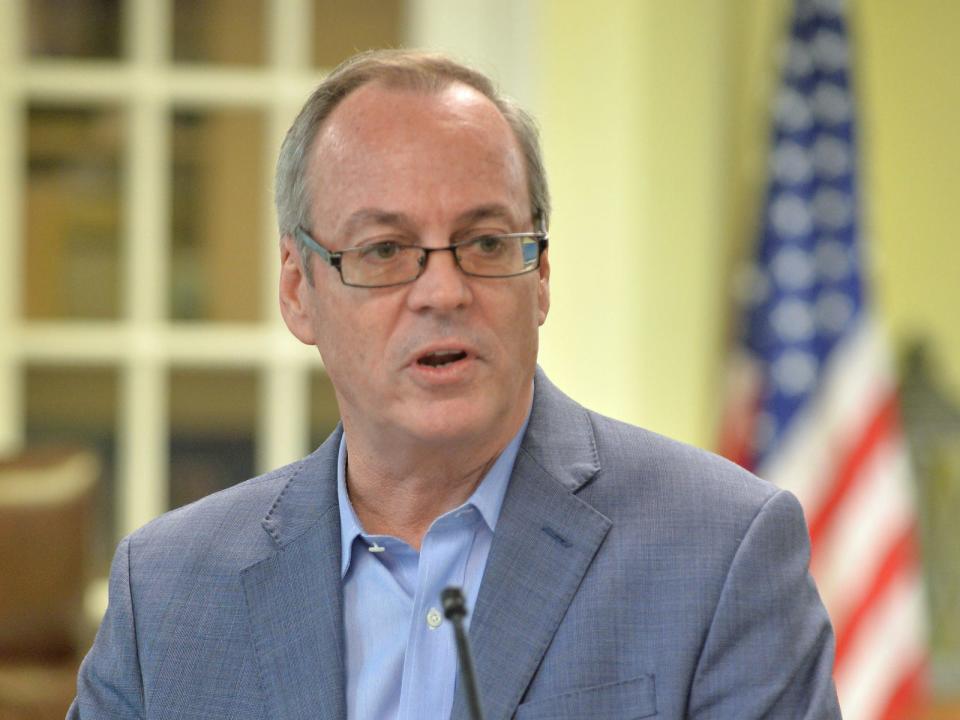Venice council cell phones to be audited as part of Sunshine Law consent agreement

VENICE – Members of the Venice City Council will turn in their cell phones to a third party on Jan. 16 for an audit, as part of a 2020 judgment won by De Novo Law Services to settle a 2018 suit that alleged the city violated the Sunshine Law because it could not properly produce text messages in response to a public records request.
Council members will not have access to their cell phones until the audit is complete.
That settlement order resolved the second public records suit involving the city and Michael Barfield – who is now best known as the director of public access for the Florida Center for Government Accountability, which also publishes the Florida Trident web site.
That judgment cost the city $45,321 and included clauses that called for the city to conduct audits of cell phones issued to elected officials by a third-party vendor to ensure all public records are being properly stored, archived and maintained.
“The audit function is something we insisted on in the last one to provide some teeth,” Barfield said. “Instead of us doing this again and again, let’s figure out a way to avoid having to come back to court and waste city taxpayer money.”

In separate public access requests, Barfield is currently suing Sarasota County to obtain text messaging and phone records for high-ranking Sarasota County officials and the Center for Government Accountability is suing Manatee County for failure to archive text messages on both personal phones used by public officials and county-issued phones.
Venice public record violations date back 15 years
Barfield was a paralegal who worked with attorney Andrea Flynn Mogenson, when she represented Anthony Lorenzo and Citizens for Sunshine Inc. v. City of Venice in an open records case that was settled in 2009.
In that suit – which cost Venice taxpayers more than $1.5 million in attorneys fees – Lorenzo, the founder of Citizens for Sunshine, filed a suit alleging that council members discussed city business by private email.
That suit led a judge, for the first time, to order officials to turn over private computers to retrieve deleted email.
Mogensen and other attorneys representing Lorenzo in the case were awarded $750,000 in attorneys' fees, which they divided. Defense attorneys for the city were paid a similar amount.
As part of that 2009 settlement, city staff were forbidden from using text messages, because the city did not have an ability to archive texts.
Venice made payments two subsequent times in relation to violation of that 2009 agreement.
In 2013, the city paid $2,067 in legal fees to Mogensen’s firm after a claim was made that the city violated the 2009 agreement by not setting up city-maintained email accounts for a Utility Rate Study Group.
In 2015, the city agreed to pay $9,400 in attorney’s fees to Mogensen’s offices, after it was found that former council member Jim Bennett violated the 2009 settlement agreement, which included a stipulation that all city business-related emails be conducted with email through the city server.
Texting between Venice city staffers prompted most recent suit
Barfield, who established De Novo Law Services in July 2017 and worked with attorney Robert Watrous, filed suit against the city based on a public records request made by the owners of McLeod Recycling Yard, which sought May 2016 texts from code enforcement employees.
An audit of city cell phone bills showed that texting started in January 2016, roughly the same time the city started a refreshment cycle of its iPhones with Verizon.
The city handles blocking of Apple’s proprietary iMessage texting through a Cisco networking product, Meraki.
Verizon had regularly blocked the ability of city phones to send SMS texts, but when the new phones were issued, that feature wasn’t turned off.
As part of a Jan. 2017 phone refresh, the city installed an app from a Portland, Oregon-based company, Smarsh, that allows for the archiving of texts – prompting the city to allow city employees to text.
This article originally appeared on Sarasota Herald-Tribune: Third-party auditor to check texts on Venice council cell pones

